Asbestos in Rental Property UK: Landlord Responsibilities
Asbestos remains a critical issue for landlords in the UK, especially for those managing properties built before 2000. Once valued for its fire-resistant and insulating properties, asbestos is now known to be a serious health hazard. UK law places clear and strict responsibilities on landlords to manage the risks of asbestos in rental properties, prioritising tenant safety and legal compliance.
Understanding Asbestos and Its Risks
Asbestos-containing materials (ACMs) can be found in many older properties, including insulation, floor tiles, roofing, and wall panels. When these materials are disturbed or deteriorate, they can release microscopic fibres into the air. Inhalation of asbestos fibres can cause severe illnesses such as lung cancer, mesothelioma, and asbestosis. Because of these risks, managing asbestos is not just a legal duty but a moral one for every landlord.
Legal Framework: Control of Asbestos Regulations 2012
The primary legislation governing asbestos management in rental properties is the Control of Asbestos Regulations 2012. These regulations apply to all non-domestic premises and the common areas of domestic buildings, such as hallways and stairwells in flats. Landlords must:
Identify and assess the presence and condition of asbestos in their properties.
Take appropriate action to prevent exposure, such as encapsulating or removing damaged ACMs.
Maintain ACMs in a safe state if they are not removed.
Inform tenants about the presence and condition of any asbestos.
Keep thorough records of all inspections, assessments, and actions taken.
These duties are reinforced by the Landlord and Tenant Act 1985, which requires landlords to keep rental properties safe and in good repair.
Duty to Manage Asbestos
Landlords must conduct an asbestos survey for any property built before 2000 to determine if ACMs are present. If asbestos is found, a management plan must be created and regularly updated. This plan should outline how risks will be monitored and controlled, who is responsible for each action, and what steps will be taken in case of deterioration or disturbance.
For non-domestic premises and the common parts of multi-occupancy buildings, landlords are considered the “dutyholder” and must ensure compliance with all aspects of the law. This includes arranging for licensed contractors to handle any asbestos removal or remedial work.
Tenant Rights and the Duty to Inform
Tenants have the legal right to be informed about the presence and condition of asbestos in their property. Landlords must provide clear information about any identified ACMs, their locations, and any measures taken to manage the risk. Transparency empowers tenants to make informed decisions and take necessary precautions.
Failure to inform tenants can result in enforcement action by the Health and Safety Executive (HSE) and potential legal claims if a tenant’s health is put at risk. Tenants can also request reports and explanations on asbestos management and may seek help from housing authorities if landlords delay action.
Regular Inspections and Record Keeping
Landlords are expected to monitor the condition of any ACMs through regular inspections and to update their management plans accordingly. Detailed records of all surveys, risk assessments, maintenance, and communication with tenants should be kept as evidence of compliance. This documentation is crucial if questions arise from tenants or regulatory authorities.
Penalties for Non-Compliance
Non-compliance with asbestos regulations can lead to substantial penalties, including:
Fines reaching thousands of pounds.
Criminal charges or imprisonment in severe cases.
Enforcement action from the HSE or local authorities.
Recent years have seen increased scrutiny and enforcement, with property owners facing significant consequences for failing to manage asbestos risks properly.
Practical Steps for Landlords
Assess the age and history of your property. If built before 2000, arrange for an asbestos survey.
Engage licensed professionals for surveys, risk assessments, and any required removal or remediation.
Share all relevant asbestos information with tenants and update them on any changes.
Keep comprehensive records of all asbestos management activities.
Stay informed about changes to regulations and best practices.
For landlords seeking professional asbestos surveys and management services, Landlords Checks offers accredited inspections, clear reporting, and compliance support.
Useful Resources
By understanding and fulfilling your responsibilities, you protect your tenants, your investment, and yourself from legal and health risks associated with asbestos in rental property.

Fire Risk Assessment

Gas Safety Certificate
Gas Safety Certificate – Domestic – Meter & Upto 2 appliances
£57.99 Book NowGas Safety Certificate – Domestic – Meter & Upto 4 appliances
£77.99 Book NowCarbon Monoxide Alarm
£80 Book NowGas Safety Certificate – Domestic – “Discounted Offer” Boiler Service + Gas Certificate & 2 appliances
£89.99 Book NowGas Safety Certificate – Commercial – 1 appliance
£199 Book NowGas Safety Certificate – Commercial – 2 appliances
£245 Book NowGas Safety Certificate – Commercial – Boiler Service
£280 Book Now

Electric Safety
Studio Appartments Electrical Safety Certificate (EICR)
£65 Book NowPAT Testing Up To 10 Items
£58 Book NowDomestic Electrical Safety Certificate EICR 1 – 3 Bedroom – 1 Consumer Unit Up to 12 Circuits
£99 Book NowDomestic Electrical Safety Certificate EICR 4 Bedrooms – 1 Consumer Unit Up to 12 Circuits
£120 Book NowCommercial Electrical Certificate (EICR) – 1 Consumer Unit Up to 12 Circuits
£149 Book NowDomestic Electrical Safety Certificate EICR 5 Bedrooms – 1 Consumer Unit Up to 12 Circuits
£150 Book NowDomestic Electrical Safety Certificate EICR 6 Bedrooms – 1 Consumer Unit Up to 12 Circuits
£158.33 Book NowFuse Box Installation
£415.83 Book Now

Asbestos Surveys

Electric-Gas Appliances & Hob Installations

Talk To Us!
Get in touch if you're uncertain or need assistance ?
020 8609 7777
Talk to a Friendly Advisor






